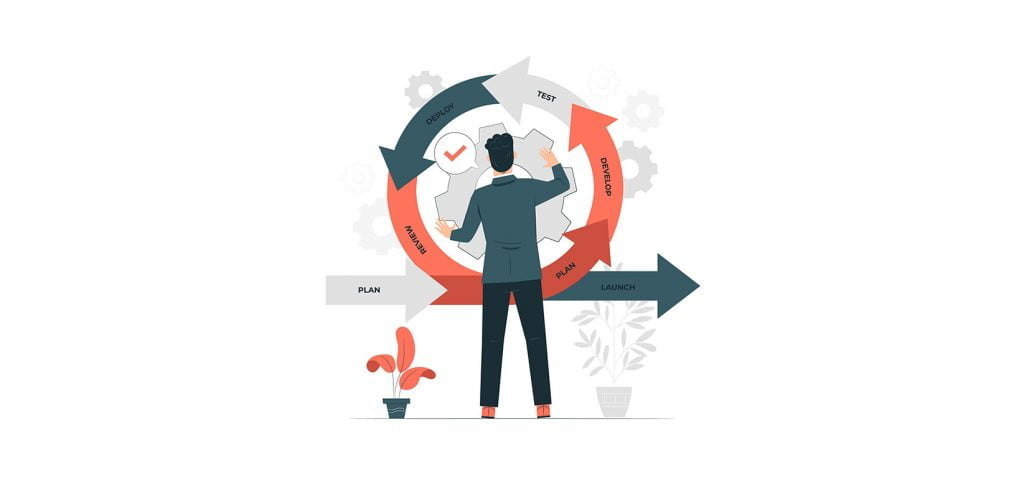How Interviews are Conducted in Major Companies and How to Prepare for Them

The modern labor market in the field of Information Technology (IT) offers plenty of opportunities for professional growth and development. Large IT companies are always interested in talented specialists who can contribute to the company's advancement. Interviews in such organizations are an important stage in the career of any candidate, and it is crucial to prepare for it and conduct it at a high level.
In this article, we will discuss the key stages and peculiarities of interviews in large companies, and provide tips for successful completion.
Stages of an Interview
An interview for an IT specialist position in a large company usually consists of several stages. Let's take a closer look at each of them.
First Stage: Resume Screening
The initial stage in the job search process is submitting your resume. A resume is a document that contains information about your education, work experience, skills, and achievements. Large IT companies receive a huge number of resumes, so the screening process is very thorough. To pass this stage, it is necessary to provide as complete and truthful information about yourself and your skills as possible.
Earlier, my colleagues and I published several useful articles on resume writing. I recommend taking a closer look at them:
How to write a proper resume for an IT specialist? Harmful advice
How to write a compelling resume for an IT specialist that grabs attention
Second Stage: HR Interview
If your resume passes the initial screening, you may be asked to have a phone or video interview with the HR department. The purpose of this stage is to gather more information about you and determine if you are suitable for further consideration. This interview usually lasts around 30 minutes and includes questions about your work experience, skills, and professional goals.
Third Stage: Technical Interview
The technical interview is the most crucial stage of the interview process. During this step, you will be asked questions about your technical skills, programming knowledge, databases, and other important topics related to your specialization. This stage can last from a few hours to several days, depending on the complexity and requirements of the company.
The technical interview may include both theoretical and practical questions. Candidates may be asked to solve programming problems or analyze and optimize existing code.
Fourth Stage: Interview with Management
If you successfully pass the technical interview, you will be invited for an interview with your future manager. During this stage, you may be asked questions about your work experience, communication skills, and ability to work in a team. This stage aims to assess your problem-solving abilities, decision-making skills, and project management capabilities.
Psychological Tests and Personality Assessment
In addition to the aforementioned stages, some large IT companies may use psychological tests and personality assessments to evaluate a candidate's fit with the company's corporate culture, as well as their ability to work in teams and handle stress.
Tips for a Successful Interview
Preparation for the Interview
Thorough preparation is essential before an interview. Research information about the company, its products, projects, and values. Familiarize yourself with the requirements stated in the job posting and prepare answers to common interview questions that may be asked.
Practice
Practicing the interview with a friend or colleague can help the candidate gain additional communication experience and confidence in their abilities.
Showcasing Skills
During the technical interview, it is important to demonstrate your skills and knowledge in your chosen field. Describe your experience with various technologies and tools. Provide examples of your projects and achievements.
Communication Skills
Soft skills are an important component of success in an IT specialist's career. Prepare answers to questions about teamwork, communication skills, and conflict resolution.
Confidence
It is important to show confidence in yourself and your skills. Be prepared for questions that may put you in a difficult situation, and do not hesitate to admit if you don't know the answer to a certain question. It is not only important to know the answers to questions but also to be able to explain your thoughts and actions.
Company-Specific Preparation
Each company has its own unique aspects. Consider how you can contribute to the company and its clients.
First Impressions Matter
Don't forget about your appearance. Dress according to the company's requirements and the position you are applying for. Be polite and professional during the interview, pay attention to your manners and tone of voice.
Conclusion
Interviewing for an IT specialist position in large companies is an important stage in the career of any candidate. It is necessary to thoroughly prepare for each stage of the interview, showcase your skills and knowledge, and demonstrate confidence in yourself and your abilities. By following the advice provided in this article, you will be able to successfully navigate the interview process and secure a job in a large IT company.
Recommend0 recommendations





Responses